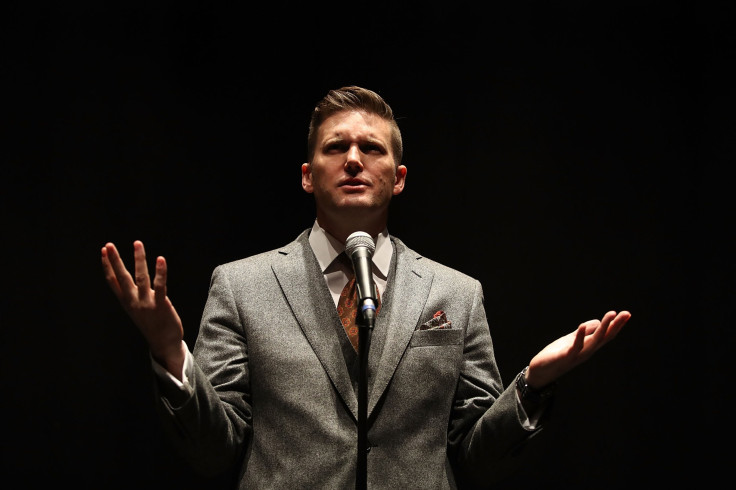White Supremacist Richard Spencer Banned From 26 Schengen Area European Countries

Richard Spencer, one of the most prominent figures in the United States white nationalist movement, denied Wednesday of receiving any government confirmation of his reported ban from entering 26 European countries.
His statement came after Poland’s state-run news agency PAP, citing unnamed sources close to Poland's Foreign Ministry, said authorities banned the Alt-Right activist from entering 26 countries in Europe’s visa-free Schengen area for five years.
Besides Poland, the 26 Schengen countries also include France, Germany, Italy, Spain, and Sweden.
A source close to the ministry confirmed to the Associated Press that the ban has taken effect.
This is not the first time that Spencer has been banned from the Schengen Zone. In 2014, he was banned from entering the 26 countries for three years after he was arrested in Hungary, where he was planning to host a white nationalist conference.
Spencer is the head of Virginia-based think tank National Policy Institute (NPI), and is recognized as among those responsible for popularizing the term "Alt-Right."
Responding to the ban, Spencer told the AP that he would contest it. He said, “I’m being treated like a criminal by the Polish government. It’s just insane. I haven’t done anything. What are they accusing me of?”
Though no reasons were given yet for the ban, Spencer's controversial views and a budding white supremacy movement in Poland may have triggered the Polish authorities to take the step.
Spencer is a staunch supporter of an Aryan homeland for a "dispossessed white race," and has called for "peaceful ethnic cleansing" in order to halt the "deconstruction" of European culture, the TeleSur reported.
His views have triggered widespread condemnation in the U.S., and many outlets and institutions have refused to host him or events organized by him.
According to reports, a weekend conference in a farm in Maryland organized by Spencer's think tank was shut down midway after the owner found he was involved. Following the ‘Unite the Right’ rally in August, both Sofitel Hotel and Willard Hotel in Washington, D.C. refused to host Spencer.
His views have landed him in trouble across the Atlantic in Europe too. A far-right event in Poland in 2015 was cancelled after progressive, anti-racist groups protested to his presence at the gathering.
According to the TeleSur, the reason for the ban can also be gleaned from what Polish Foreign Minister Witold Waszczykowski said last month.
Waszczykowski described Spencer as a person who insults what happened during World War II and defames the Holocaust. Waszczykowski said, “He should not appear publicly, especially not in Poland.”
Earlier this month, Spencer had canceled his plans to travel to Poland for a far-right conference in Warsaw after seeing reports the government was threatening to keep him out of the country.
“It just didn't feel like it was worth it,” he said.
Nonetheless, Warsaw played host to a rally of 60,000 Europeans chanting slogans such as "White Europe" and "We Want God," the latter in reference to a hymn cited by President Donald Trump during his visit to the Polish capital.
© Copyright IBTimes 2024. All rights reserved.











